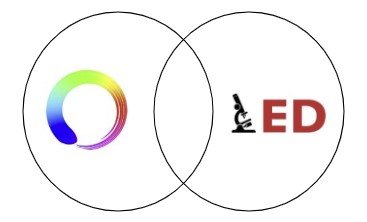- Opinion
Comparing Conferences

I attend a few conferences every year. Most are fairly similar even if the target audience varies. Teacher conferences, especially those still owned by genuine practitioners, are noticeably different however. Here you are reminded that the teaching profession remains a vocation, driven by a passion for learning and a desire to improve the life chances of young people. While the goal is shared, views on the best way to achieve it continue to differ across the profession. Sometimes things even become 'tribalized'. A good example of this is the current split between traditionalists ('trads') and progressives ('progs').
It's easy to fall into a bit of a bear trap hear by over-simplifying things and I was keen to get a better understanding of the two perspectives. To do this I attended two recent conferences. The first was the ResearchEd National Conference which attracts plenty of 'Trads'. The second was the inaugural Rethinking Education conference, a new event sure to attract 'Progs'.
Inevitably, both events attracted their fair share of fundamentalists who would struggle to find common ground with the other side. However there seemed to me at least a sizeable number of attendees who were closer to a middle.

Assessment - the common ground?
For obvious reasons, I had a particular focus on assessment. One area of consensus here was the ongoing challenge of 'assessment backwash' presented by current practices, and in particular its influence on curriculum and pedagogy. This in turn was tied into shared challenges around accountability.
A common experience shared at both events centered on the desire for certainty, especially around future progress and outcome. For many years this was tackled by looking for lagging indicators in school data. As this proved problematic (and largely useless), we have now moved to a focus on leading indicators, specifically in curriculum planning. My hunch is that this will ultimately be replaced by another fad in due course (The reasons behind the never ending move from fad-to-fad is well explained in the recent book by Prof. Becky Allen et. al.).
The best, and worst, ways of dealing with uncertainty are well explored. In software development for example, an agile approach is widely accepted as a good way forward. The same principles have also been employed in the military for many years. In both cases there is a recognition of the importance of context and local decision making - something missing from a highly centralised education system like the one in England.
Teachers know they are working in a highly uncertain environment - they are dealing with children after all! However, the accountability system right now is built for a different world, more akin to a factory rather than a school. It is this fundamental misalignment that proved a common under-current at both events.
The reasons behind the extreme factory approach in England are complex - how we got here and how we might change it are areas for constant research and exploration. Sam Freedman (Former UK Govt Policy Advisor) provided an excellent overview in a recent Institute for Government report for example. It was pleasing to see the report recognising how new approaches such as Comparative Judgement could have a positive impact without the need for fundamental short term system change.
Final thoughts
Attending both events was a great learning experience and a reminder of the daily brilliance delivered by teachers regardless of their 'tribe'. The energy and enthusiasm at both was hugely encouraging. In the 'Twitterverse' at least it is easy to see a profession that is fractured and divided, however my experience showed that there remains far more in common than there is that divides.
